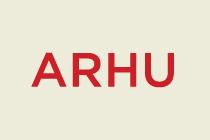COMMUNITY PIPELINE WINS SECOND PLACE IN DO GOOD CHALENGE
On April 29th, the second place of the Do Good Challenge’s Venture Track category was awarded to Community Pipeline, a new initiative from the College of Arts & Humanities’ Center for Synergy and the ARHU Social Innovation Scholars. Guided by mentors and faculty members, University of Maryland students designed and implemented their own after-school programs in local elementary and middle schools. This organization was the brainchild of a few young, dedicated students, among them Nick Henninger ’15: history & economics major, Social Innovation Scholar and project mentor for the organization’s 2014 cohort.
Nick remembers sitting in a club meeting for AshokaU Terp Changemakers in April 2013 and listening to members express an earnest but unsubstantiated desire to teach entrepreneurship to a local school. What they needed, Nick thought, was a pipeline from the university to local schools such as Paint Branch Elementary and College Park Academy.
At the time, Nick was part of the 2013 cohort of the Social Innovation Scholars. Over the course of a year, the fourteen undergraduate scholars participated in classes, internships, fundraisers and meetings to nurture ideas and develop entrepreneurial projects. With support from ARHU Assistant Dean Sheri Parks and mentors from local schools, Nick and another scholar, Chinese and international business major Clara Huang ’14, came up with a plan to help interested college students turn their enthusiasm into action.
Community Pipeline launched on March 31st of this year. Students ran four different after-school programs three days a week. 98 volunteers hosted a “diverse array” of activities, including singing, engineering, geography and more. Community Pipeline provided Maryland students with the logistical services they need, such as free door-to-door transportation, an on-campus background check, lesson plan assistance, communication with school officials and any miscellaneous costs. In the near future, Community Pipeline may create its own website, and perhaps even spread its ideas to other universities. These are big tasks, but the students aren’t backing down.
“It’s meant to be enormous,” Nick says. “It’s meant to change the way this university looks and feels to the local community.”





